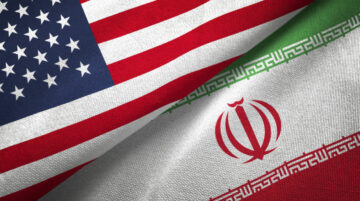
A broad coalition of America’s largest businesses, from Apple Inc. to Intel Corp., protested the abrupt way in which India introduced tech import restrictions in August, saying the surprise move will damage New Delhi’s ambitions to become a global manufacturing hub and harm consumers.
In a letter to U.S. officials this week, eight American trade groups comprising the biggest players in technology and manufacturing asked the Department of Commerce, the U.S. Trade Representative and the government more broadly to urge India to reconsider the policy. The South Asian nation plans to impose a new license requirement for tech imports from November 1, spanning everything from laptops and tablets to servers and components for data centers.
The move “could significantly disrupt trade, hamper efforts to more closely integrate India into global supply chains and harm businesses and consumers in both countries,” the trade groups said in a joint memo reviewed by Bloomberg News. The licensing regime was initially implemented with immediate effect in August before authorities allowed a three-month reprieve to let companies obtain the required licenses.
Read more: Tech Giants Pause Indian Laptop Imports Under New Licensing Rule
It comes on the eve of a marquee business gathering in New Delhi that will cap off the final days of India’s G20 presidency. The term has been highlighted by a global tour by Prime Minister Narendra Modi, who’s sought to expand bilateral trade relations with the U.S., France and other nations. He was warmly received in Washington in June and found a willing partner for deepening ties in President Joe Biden.
U.S. industry groups, including the Information Technology Industry Council, the National Association of Manufacturers and the Semiconductor Industry Association, raised several objections to the planned licensing rules. Any barrier to trade could affect the shipment of U.S.-made computers and electronics to India, which could complicate the ability of businesses in the country, whether American or Indian, to run and expand their operations.
India’s reliability as a trade and supply chain partner is put into question by steps that inhibit the free flow of goods, according to the document. Noting Modi’s successful visit to Washington, which talked up the rich potential for increasing trade between the U.S. and India, the letter concludes by underscoring the need for business certainty.
“This potential will only be achieved if businesses have assurance about a predictable regulatory climate,” the signatories said.
- SEO Powered Content & PR Distribution. Get Amplified Today.
- PlatoData.Network Vertical Generative Ai. Empower Yourself. Access Here.
- PlatoAiStream. Web3 Intelligence. Knowledge Amplified. Access Here.
- PlatoESG. Automotive / EVs, Carbon, CleanTech, Energy, Environment, Solar, Waste Management. Access Here.
- PlatoHealth. Biotech and Clinical Trials Intelligence. Access Here.
- ChartPrime. Elevate your Trading Game with ChartPrime. Access Here.
- BlockOffsets. Modernizing Environmental Offset Ownership. Access Here.
- Source: https://www.supplychainbrain.com/articles/37943-top-us-firms-from-apple-to-intel-decry-india-pc-import-curbs
- :has
- :is
- $UP
- 1
- a
- ability
- About
- According
- achieved
- affect
- allowed
- ambitions
- American
- and
- any
- Apple
- APPLE INC
- AS
- asian
- asked
- Association
- assurance
- AUGUST
- Authorities
- barrier
- BE
- become
- been
- before
- between
- biden
- Biggest
- Bloomberg
- both
- broad
- broadly
- business
- businesses
- by
- cap
- Centers
- certainty
- chain
- chains
- Climate
- closely
- comes
- Commerce
- Companies
- components
- comprising
- computers
- Consumers
- Corp
- could
- Council
- countries
- country
- damage
- data
- data centers
- Days
- Delhi
- Department
- Disrupt
- document
- effect
- efforts
- eight
- Electronics
- eve
- everything
- Expand
- final
- firms
- flow
- For
- found
- France
- Free
- from
- G20
- gathering
- giants
- Global
- goods
- Government
- Group’s
- harm
- Have
- he
- Highlighted
- HTTPS
- Hub
- if
- immediate
- implemented
- import
- imports
- impose
- in
- Inc.
- Including
- increasing
- india
- Indian
- industry
- information
- information technology
- initially
- integrate
- Intel
- into
- introduced
- joe
- Joe Biden
- joint
- jpg
- june
- laptop
- laptops
- largest
- let
- letter
- License
- licenses
- Licensing
- Manufacturers
- manufacturing
- minister
- more
- move
- narendra modi
- nation
- National
- Nations
- Need
- New
- news
- noting
- November
- obtain
- of
- off
- officials
- on
- only
- Operations
- or
- Other
- partner
- pause
- PC
- planned
- plans
- plato
- Plato Data Intelligence
- PlatoData
- players
- policy
- potential
- Predictable
- president
- president joe biden
- Prime
- prime minister
- put
- question
- raised
- received
- reconsider
- regime
- regulatory
- relations
- reliability
- representative
- required
- requirement
- restrictions
- reviewed
- Rich
- rules
- Run
- s
- Said
- saying
- semiconductor
- Servers
- several
- Signatories
- significantly
- sought
- South
- spanning
- Steps
- successful
- supply
- supply chain
- Supply chains
- surprise
- tech
- Technology
- term
- that
- The
- the information
- their
- this
- this week
- Ties
- to
- top
- Tour
- trade
- u.s.
- under
- Visit
- was
- washington
- Way..
- week
- whether
- which
- will
- willing
- with
- zephyrnet












